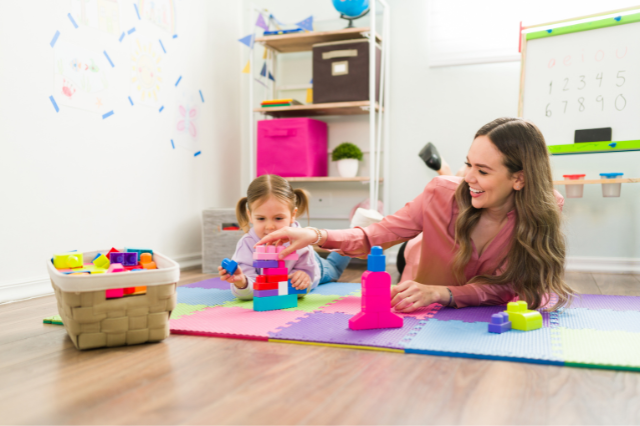Gestalt Language Processing
Megan Banham, CCC-SLP
Did you know that there are two ways to learn language? In this post one of our speech therapists, Megan, will discuss the two natural and common ways to develop language through Gestalt Language Processing, and Analytic Language Development.
What is Analytic Language Development?
Analytic language development is what we often see classified as ‘typical’ language development. A child begins learning language by first babbling, followed by single words, short utterances, and use of sentences.
What is Gestalt Language Development (Gestalt Language Processing)?
Gestalt language development is most commonly seen in children with autism, but can be found in neurotypical children as well. In this form of language development, children learn language by using delayed echolalia. Delayed echolalia refers to an utterance that is repeated following a period of time. These echolalic phrases can be from songs, movies, T.V. shows, books, or something they pick up from family members or those around them. Gestalt Language Processors use echolalia to communicate meaning. For example: Just recently while scrolling through social media I came across a video where an autistic child was singing the song “Remember Me” from Disney’s Coco, to his beloved great grandmother who was dying. In that video, the child used the song “Remember Me” to express his feelings and say goodbye. Echolalia is a form of communication.
Some signs that your child is a Gestalt Language Processor:
They repeat lines from movies or T.V shows
Their speech is rich in intonation
They have been labeled as echolalic
They make pronoun errors or speak in 3rd person
They have difficulty answering questions
They don’t talk yet, but they sing/hum rhythmically
Stages of Gestalt Language Processing Development:
There are 4 stages to Gestalt Language Development:
Stage 1- Echolalia
Can be single word or multi-word scripts.
Example: “Just keep swimming, Just keep swimming…”
Stage 2- Partial or Mitigated Gestalts
Taking parts of scripts and combining them with other parts or chunks
Example: “Just keep” + “jumping” = “Just keep jumping”
Stage 3- Single words and two word combinations
Breaking the script down into a single word and/or making a new combination
Example: “Swimming” “Swimming pool” “Fish swimming”
Stage 4- New original phrases or sentences
Putting together word units on their own to make a novel phrase or sentence
Example: “The fish is swimming” “She is swimming in a pool”




